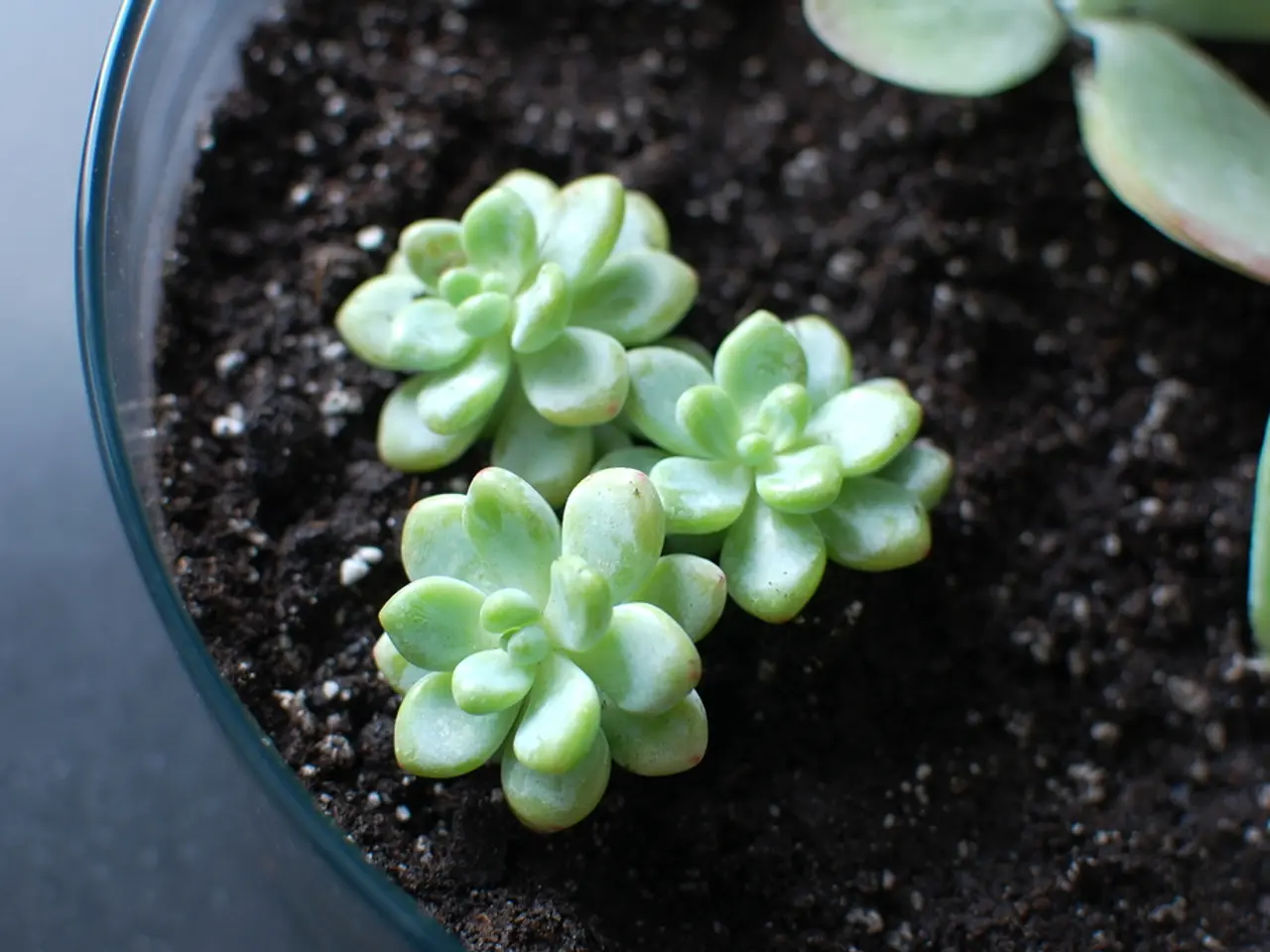Fundamental Aspects of Soil Analysis in the Garden cultivation Process
Empowering Gardening Success: The Importance of Soil Testing
Soil testing is an essential tool for gardeners, offering numerous benefits that enhance gardening success and promote eco-friendly practices. By revealing nutrient deficiencies and imbalances, assessing soil health, and determining pH levels, soil testing empowers informed decisions that boost plant health, preserve soil vitality, and support environmentally responsible gardening.
Optimized Plant Growth
Soil testing offers gardeners valuable insights into their soil's nutrient profile, enabling them to select suitable plants and adjust soil amendments to create ideal growing conditions. By identifying nutrient deficiencies and imbalances, such as nitrogen, phosphorus, potassium, secondary nutrients, and micronutrients, gardeners can ensure their plants receive the necessary nutrients for optimal growth.
Improved Soil Health
Assessing organic matter and microbial activity through soil tests supports sustainable soil function, structure, and resilience. This is crucial for long-term fertility and plant robustness.
pH Level Determination
Knowing soil pH ensures nutrients remain available to plants, as inappropriate pH can “lock out” essential nutrients like phosphorus. Adjustments with lime or sulfur help maintain an optimal pH range (typically 6.0–7.5 for most crops).
Cost Savings
By precisely identifying which fertilizers and amendments the soil actually needs, soil testing prevents wasteful and unnecessary purchases, thus reducing input costs. It also avoids over-fertilization that can cause environmental harm, saving money from potential remediation and runoff damage.
Environmental Sustainability
Careful nutrient management based on soil testing reduces nutrient runoff and groundwater pollution by applying only necessary fertilizers. This contributes to eco-friendly gardening practices.
Long-Term Monitoring
Regular tests track changes in soil health over time, allowing gardeners to take proactive measures to maintain or improve soil quality for years, enhancing overall garden productivity and resilience.
Accessible and Actionable Insights
Modern digital and AI-powered soil testing platforms now provide rapid, field-specific insights and management recommendations, making soil analysis more accessible and actionable for gardeners of all scales.
Conducting a Soil Test
To take a soil sample, use a trowel to collect about a cup's worth of soil from various parts of the garden. Soil testing can be done at any time of the year, but it should be done before planting crops. After collecting the soil samples, let them air dry at room temperature and transfer each sample to a clean container or resealable plastic bag. Label each soil sample with the soil area and the date for testing. It is not recommended to test soil when it is wet or has recently been amended.
Soil Testing for All Gardens
Soil testing is critical in high-yield farms but can also be conducted in small gardens. Soil samples can be sent to local labs or gardening centres for testing. Different soils have different nutrient profiles, and conducting soil testing allows determining what nutrients a soil lacks.
Control Pests, Diseases, and Invasive Plants
Soil testing can help control pests, diseases, and invasive plants by identifying nutrient imbalances in the soil, which can lead to an environment more conducive to these issues.
In sum, soil testing empowers gardeners to make informed decisions that boost plant health, preserve soil vitality, save money on inputs, and support environmentally responsible gardening. By providing the necessary information to amend the soil with the right products at the right intervals, soil testing helps save money and time on gardening. After assessing the soil, fertilizer and lime recommendations are given for profitable farming. Regular soil testing is beneficial for tracking and improving soil progress and optimizing the garden for plant growth.
Balanced Nutrient Profiling
Leveraging soil testing's insights, gardeners can achieve a home-and-garden lifestyle that promotes balanced nutrient profiles for optimal plant growth, fostering a healthy home-and-garden ecosystem.
Eco-Friendly and Economical
By determining the exact soil requirements through soil testing, home gardeners can implement eco-friendly and economical gardening practices, fostering a harmonious lifestyle that positively impacts both the environment and their wallets.



